
Find Help
More Items From Ergsy search
-

Can gonorrhoea infect areas other than the genital organs?
Relevance: 100%
-

What is Gonorrhoea?
Relevance: 59%
-

Can gonorrhoea be prevented?
Relevance: 52%
-

Are there any long-term effects of gonorrhoea?
Relevance: 51%
-

How is gonorrhoea transmitted?
Relevance: 51%
-

Is there a vaccine for gonorrhoea?
Relevance: 48%
-

Can gonorrhoea be asymptomatic?
Relevance: 48%
-

What should one do if they suspect they have gonorrhoea?
Relevance: 48%
-
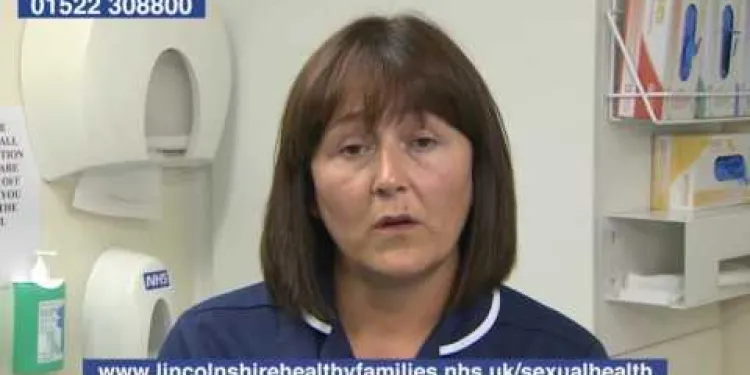
The symptoms of gonorrhoea
Relevance: 48%
-

How is gonorrhoea diagnosed?
Relevance: 48%
-

Vaginal Swab test for Gonorrhoea and Chlamydia
Relevance: 45%
-

Urine test for Gonorrhoea and Chlamydia
Relevance: 45%
-

Why is antibiotic resistance a concern with gonorrhoea?
Relevance: 44%
-

Understanding Your Sexual Health - Gonorrhoea
Relevance: 44%
-

Understanding Your Sexual Health - Genital Warts
Relevance: 41%
-
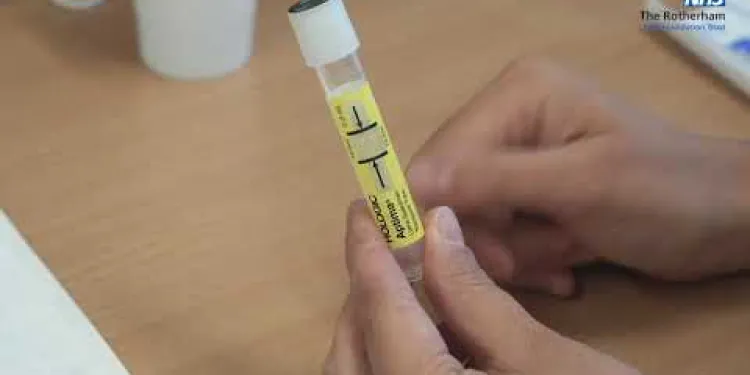
Urine test for Gonorrhoea and Chlamydia
Relevance: 40%
-

What antibiotics are used to treat gonorrhoea?
Relevance: 40%
-

Pharyngeal swab for Gonorrhoea and Chlamydia
Relevance: 40%
-

Sexually transmitted infections STIs
Relevance: 40%
-

Female genital mutilation (FGM) | NHS
Relevance: 39%
-

Female Genital Mutilation: The Facts | NHS
Relevance: 39%
-
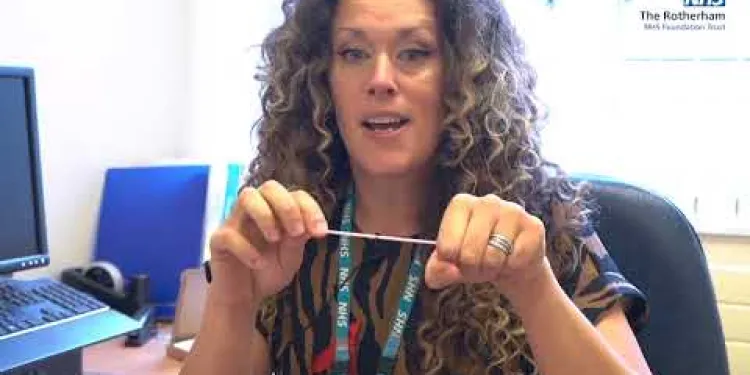
Rectal swab test for Gonorrhoea and Chlamydia
Relevance: 38%
-

Can you still get gonorrhoea after treatment?
Relevance: 38%
-

Are there symptoms of an HPV infection?
Relevance: 38%
-

How often should one get tested for gonorrhoea?
Relevance: 37%
-

NHS STI (Sexually Transmitted Infections) Information Video
Relevance: 33%
-
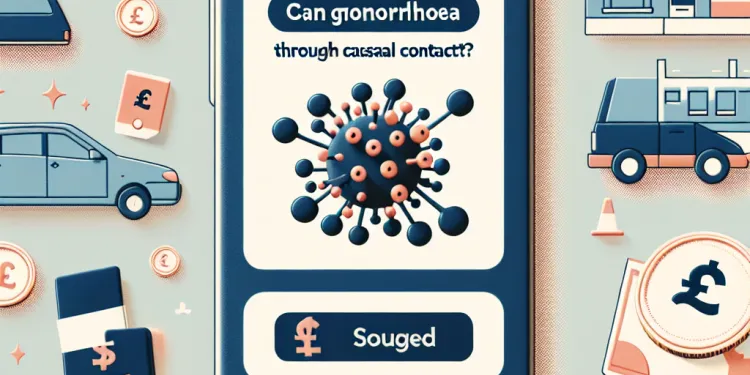
Can gonorrhoea be spread through casual contact?
Relevance: 32%
-

Is gonorrhoea treatable?
Relevance: 31%
-
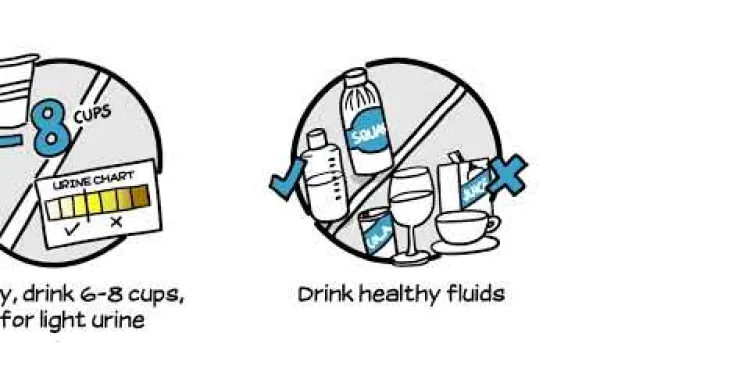
Avoiding infections with urinary incontinence
Relevance: 30%
-

Can gonorrhoea cause complications if left untreated?
Relevance: 30%
-

Women talking about their personal experiences of female genital mutilation (FGM) | NHS
Relevance: 29%
-

Does scabies affect internal organs?
Relevance: 29%
-

What is 'the clap'?
Relevance: 26%
-

Mycobacterium chimaera infection
Relevance: 25%
-

Do antibiotics work on viral infections?
Relevance: 25%
-

Are E. coli infections contagious?
Relevance: 23%
-

What are opportunistic infections?
Relevance: 22%
-

Chest infection: what should I do?
Relevance: 22%
-

Can E. coli infections be treated?
Relevance: 22%
-

How is E. coli infection diagnosed?
Relevance: 22%
Introduction
Gonorrhoea is a sexually transmitted infection (STI) caused by the bacterium Neisseria gonorrhoeae. While it is commonly associated with infections of the genital organs, this bacterium can also affect other parts of the body. Understanding the various ways gonorrhoea can manifest is important for effective diagnosis and treatment.
Oral and Pharyngeal Infections
Gonorrhoea can infect the throat, a condition known as pharyngeal gonorrhoea, through oral sexual contact with an infected partner. Pharyngeal gonorrhoea might not always present symptoms, but when it does, it can lead to a sore throat or discomfort similar to a typical throat infection. Despite its often asymptomatic nature, it is still contagious and requires treatment to prevent transmission and complications.
Rectal Infections
Rectal gonorrhoea can occur if the bacteria are transmitted to the rectum through anal intercourse with an infected partner. Symptoms might include anal itching, soreness, discharge, or bleeding. Like other types of gonorrhoea, it can be asymptomatic, making regular screening important for those at risk, especially men who have sex with men (MSM) and individuals engaging in anal intercourse.
Ocular Infections
Gonorrhoea can also infect the eyes, a condition called gonococcal conjunctivitis. This can occur if infected secretions come into contact with the eye. Symptoms include redness, irritation, and discharge from the eyes. While less common than other forms, ocular gonorrhoea requires prompt medical attention to prevent complications, including potential blindness.
Systemic Infections
In rare cases, gonorrhoea can spread to other parts of the body through the bloodstream, leading to disseminated gonococcal infection (DGI). Symptoms of DGI may include fever, skin lesions, joint pain, and arthritis. This condition represents a medical emergency, requiring immediate treatment with antibiotics to prevent severe health outcomes.
Prevention and Treatment
Preventing gonorrhoea involves safe sexual practices, including the use of condoms and regular STI screening for sexually active individuals. If diagnosed with gonorrhoea, treatment typically involves antibiotics. However, due to increasing antibiotic resistance, effective treatment requires prompt medical intervention and adherence to prescribed medication regimens.
Conclusion
While gonorrhoea is commonly associated with genital infections, it can affect various other areas of the body. Recognizing the symptoms and potential complications of gonorrhoea infections outside the genital region is crucial for timely treatment and prevention of the disease's spread. Regular screenings and responsible sexual health practices remain key components in managing and preventing gonorrhoea infections.
Introduction
Gonorrhoea is an infection you can get from having sex. It is caused by a germ called Neisseria gonorrhoeae. Most people think it only affects the sex organs, but it can harm other body parts too. Knowing how gonorrhoea spreads helps doctors treat it better.
Mouth and Throat Infections
Gonorrhoea can infect your throat if you have oral sex with someone who is sick. This can cause a sore throat, but sometimes you might not notice any problems. Even if you feel okay, you can still give it to someone else. It is important to get medicine for it.
Rectal Infections
Gonorrhoea can infect the bottom (rectum) if there is anal sex with someone who has the infection. You might feel itchy, sore, or notice bleeding. It might not always show signs, so getting checked by a doctor is important, especially for people who might be at risk.
Eye Infections
Gonorrhoea can get into your eyes, called gonococcal conjunctivitis, if the bacteria touch your eyes. This can make your eyes red, itchy, and have pus. Though it happens less, it is serious and needs fast treatment to avoid bad problems.
Body-wide Infections
Sometimes gonorrhoea can travel in the blood and spread to other parts of your body, called disseminated gonococcal infection (DGI). Symptoms include fever and pain in the skin and joints. This is very serious and needs quick treatment with medicine.
Keeping Safe and Getting Help
To stop gonorrhoea, use condoms and visit the doctor regularly if you are sexually active. If you have gonorrhoea, doctors give you medicine to make it go away. But some gonorrhoea is hard to treat, so it’s important to see your doctor as soon as possible and follow their advice.
Summary
Gonorrhoea can harm more than just sex organs. It can cause problems in the throat, bottom, eyes, and other body parts. Knowing the signs helps in getting fast treatment. Seeing your doctor regularly and being careful during sex are important to stay healthy.
Frequently Asked Questions
Can gonorrhea infect areas other than the genital organs?
Yes, gonorrhea can infect areas other than the genital organs.
Which areas of the body can gonorrhea infect?
Gonorrhea can infect the throat, rectum, eyes, and joints, in addition to the genital organs.
How does gonorrhea infect the throat?
Gonorrhea can infect the throat through oral sex with an infected partner.
What are the symptoms of gonorrhea in the throat?
Symptoms of gonorrhea in the throat can include a sore throat, but it often presents with no symptoms.
Can gonorrhea infect the eyes?
Yes, gonorrhea can infect the eyes, especially if infected fluids come into contact with them.
What are the symptoms of gonorrhea in the eyes?
Symptoms of gonorrhea in the eyes include redness, irritation, and discharge.
Is it possible for gonorrhea to infect the rectum?
Yes, gonorrhea can infect the rectum, particularly after anal sex with an infected person.
What are the symptoms of rectal gonorrhea?
Symptoms of rectal gonorrhea include discharge, anal itching, soreness, bleeding, and painful bowel movements.
Can gonorrhea cause joint infections?
Yes, gonorrhea can spread through the bloodstream and infect the joints, a condition known as disseminated gonococcal infection (DGI).
What is disseminated gonococcal infection (DGI)?
DGI is a systemic condition where gonorrhea bacteria spread to the joints and other parts of the body, causing symptoms like joint pain, fever, and skin lesions.
How can gonorrhea be transmitted to the throat, eyes, or anus?
Gonorrhea can be transmitted to these areas through oral, anal, or direct contact with infected bodily fluids.
Can a person be infected with gonorrhea in multiple areas of the body?
Yes, a person can have gonorrhea infections in multiple body sites simultaneously.
How is gonorrhea diagnosed in non-genital areas?
Gonorrhea in non-genital areas can be diagnosed with specific swab tests from the throat, rectum, or eyes.
What is the treatment for gonorrhea in the throat?
Treatment typically involves antibiotics, similar to those used for genital gonorrhea.
How can gonorrhea infections in areas other than the genitals be prevented?
Using protection during oral and anal sex and avoiding contact with infected bodily fluids can reduce the risk of transmission.
Are there any complications from untreated gonorrhea in non-genital areas?
Yes, untreated gonorrhea can lead to complications like localized infections, systemic dissemination, and potential scarring or damage in affected tissues.
Is gonorrhea in the throat contagious?
Yes, gonorrhea in the throat can be contagious and spread through oral sex.
What should someone do if they suspect a non-genital gonorrhea infection?
They should see a healthcare provider for testing and treatment as soon as possible.
Can gonorrhea be spread by sharing clothes or towels?
Gonorrhea is not spread through casual contact, so it cannot be transmitted by sharing clothes or towels.
Why is it important to get treated for gonorrhea infections quickly?
Prompt treatment can prevent complications and stop the spread of the infection to others.
Can gonorrhea make you sick in other parts of the body?
Yes, gonorrhea can also infect other parts of the body, not just the private parts.
Where Can Gonorrhea Infect the Body?
Gonorrhea is a kind of germ that can make people sick. It can get into different parts of the body. Here is where it can infect:
- Private parts
- Mouth
- Throat
- Eyes
- Bottom (anus)
If you are worried, you should talk to a doctor. They can help you feel better. Also, talking to a trusted adult can be helpful.
Gonorrhea is a sickness that can make you feel bad in different parts of your body. It can hurt your throat, bottom, eyes, and joints, as well as your private parts.
How does gonorrhea infect the throat?
Gonorrhea is a sickness caused by germs.
You can get it in the throat by doing certain activities, like kissing or oral sex, with someone who has it.
To protect yourself, use condoms or dental dams during oral sex.
If you think you have it, see a doctor.
The doctor can give you medicine to help you feel better.
Gonorrhea is an illness you can get in your throat if you have oral sex with someone who has it.
Tools like picture books or simple videos can help you understand more about staying healthy.
What happens if you have gonorrhea in your throat?
If someone has gonorrhea in their throat, they might have:
- Sore throat
- Feeling of having a lump in the throat
- Pain when swallowing
- Swollen neck glands
- Sometimes no symptoms at all
If you think you might have this, it’s important to see a doctor. You can also ask someone you trust for help. A nurse or doctor can do tests and give you medicine if you need it.
Using a clear speech reader or audiobook might help understand this better.
Having gonorrhea in your throat might make your throat feel sore. But sometimes, you may not feel any different at all.
Can you get gonorrhea in your eyes?
Yes, gonorrhea can infect the eyes. If you have questions or feel worried, ask a doctor or a nurse. They can help you understand more. Here are some tips to help you read better: - Take your time and read slowly. - Use a ruler or your finger to keep your place on the page. - Ask someone to read with you or to talk about what it means.Yes, gonorrhea can get into your eyes. This can happen if fluids that have the infection touch your eyes.
What happens to your eyes if you have gonorrhea?
If you have gonorrhea in your eyes, you might notice some signs. Here is what could happen:
- Your eyes may become red and sore.
- They might feel itchy or like they are burning.
- You could see lots of tears or gooey stuff coming out of your eyes.
- Bright lights might hurt your eyes.
If you think you have these signs, it is important to see a doctor. They can help you feel better.
Using the following tools can help if you are worried about your eyes:
- Ask someone you trust to read things with you.
- Use apps that can read out loud to you.
- Draw a picture of your symptoms to show the doctor.
If you have gonorrhea in your eyes, your eyes might look red, feel sore, and have some sticky stuff coming out.
Can you get gonorrhea in your bottom?
Yes. Gonorrhea can make you sick in the bottom, especially if you have anal sex with someone who has it.
What happens if you have rectal gonorrhea?
If you have rectal gonorrhea, you might feel some signs. Here is what to look for:
- Pain or feeling sore in your bottom.
- Itching around your bottom.
- Having a discharge (liquid) from your bottom.
- Feeling like you need to go to the toilet more often.
- Sometimes, there are no signs at all.
If you think you might have this, it is important to talk to a doctor or nurse. They can help you feel better.
Some helpful things:
- Ask someone you trust to go with you to the doctor.
- Write down your questions before you see the doctor.
- Use pictures or videos to understand more.
Signs of rectal gonorrhea are: leaking fluid, itchy bottom, feeling sore, bleeding, and pain when going to the toilet.
Can gonorrhea make your joints hurt or swell?
Gonorrhea is an illness you get from germs, and it can sometimes make your joints hurt or swell. Your joints are where your bones meet, like your knees or elbows.
If you think you have gonorrhea, or if your joints are hurting or swelling, talk to a doctor. They can help you feel better.
Here are some ways to make reading easy:
- Use a finger to follow the words as you read.
- Ask someone to read with you and explain what you read.
- Look at pictures or videos about gonorrhea and joint pain.
Yes, gonorrhea can move through the blood and hurt the joints. This is called DGI.
What is DGI?
DGI stands for Disseminated Gonococcal Infection. It is a type of infection from a germ called gonococcus. This germ can spread in the body and make you sick.
If you find it hard to read, you can use helpful tools. You can try text-to-speech, which reads the words aloud to you. You can also ask someone you trust to help you understand.
DGI is a health problem that happens when the gonorrhea germs spread in the body. It can make your joints hurt, give you a fever, and cause spots on your skin.
How can gonorrhea spread to the throat, eyes, or bottom?
Gonorrhea is a germ that can make you sick. It can spread to different parts of the body. Here is how:
- Throat: You can get it by kissing or doing oral sex with someone who has gonorrhea.
- Eyes: You can spread it to your eyes if you touch them with hands that have the germ on them.
- Bottom: You can get it through anal sex with someone who has gonorrhea.
Remember to wash your hands and use protection like condoms. If you feel sick, see a doctor right away.
Gonorrhea can spread when you touch these parts of the body with your mouth or bum, or if you touch body fluids that have the infection.
Can you get gonorrhea in different parts of your body?
Gonorrhea is a sickness. You can get it in different places like the private parts, throat, or eyes.
Helpful Tools: You can ask a doctor or use pictures and videos to understand better.
Yes, a person can get gonorrhea in different parts of their body at the same time.
How do doctors find out if someone has gonorrhea in other body parts?
Gonorrhea is an illness. It can be in places like the throat, eyes, or rectum. Doctors have ways to test for it.
Here are ways doctors check for gonorrhea:
- Throat Swab: Doctors gently take some cells from the throat using a soft cotton stick.
- Eye Swab: If there is an eye problem, they use a soft stick to get cells from the eye.
- Rectum Swab: Sometimes, they use a soft stick to get cells from the bottom.
These tests help doctors see if someone has gonorrhea. It is important to ask a doctor if you feel unwell.
If reading is hard, you can use audiobook apps to listen. You might also use picture books to help understand.
Doctors can find gonorrhea in places other than the private parts. They can check for it in the throat, bottom, or eyes. They use special cotton swabs to do this.
How do doctors treat gonorrhea in the throat?
If you have gonorrhea in your throat, the doctor will give you medicine. This medicine is called antibiotics. It helps your body fight the germs that make you sick.
It is important to take all the medicine the doctor gives you, even if you start to feel better. This makes sure all the germs are gone.
If you have questions, you can ask the doctor or a nurse. They are there to help you feel better.
To remember to take your medicine, you can use a timer or ask a family member to remind you.
Doctors usually give medicine called antibiotics. These are the same medicines used to treat a sickness called genital gonorrhea.
How to Stop Gonorrhea from Spreading to Other Parts of the Body?
Gonorrhea is a germ that can make you sick. It can be in places like the throat or eyes, not just the private parts.
- Use a condom when you have sex. This keeps the germs away.
- Wash your hands well with soap and water if you touch areas with germs.
- Don't share towels or toothbrushes.
- If you think you have gonorrhea, go to the doctor.
- Tell your partner to get checked too.
Remember, staying clean and being careful with your body can help stop gonorrhea from spreading.
Using protection, like condoms, during oral and anal sex can help keep you safe. Try to stay away from touch with fluids that are infected or make people sick.
What can happen if gonorrhea in other body parts is not treated?
Yes, if gonorrhea is not treated, it can cause problems. It can cause infections in one area, spread to other parts of the body, and leave scars or damage in the tissues it affects.
Can you catch gonorrhea from someone's throat?
Yes, you can catch gonorrhea in the throat. It spreads when you have oral sex.
What to Do if You Think You Have a Throat or Eye Infection from Gonorrhea?
1. Go to the doctor's office as soon as possible.
2. Your doctor can check and find out if you have the infection.
3. You might need medicine to help you get better.
4. Tell someone you trust, like a friend or family member, so they can help you.
If you want more support, ask your doctor for help or use apps and websites that explain health in simple words.
They should go to a doctor or nurse quickly to get checked and get medicine if needed.
Can you get gonorrhea from sharing clothes or towels?
No, you cannot get gonorrhea from sharing clothes or towels.
Gonorrhea is an illness you get from having unsafe sex. It is not spread by touching clothes or towels.
If you want help to read better, you can:
- Listen to stories and books.
- Ask someone to read with you.
- Use audiobooks.
Gonorrhea is not spread by things like sharing clothes or towels. You can't catch it this way.
It spreads in different ways. If you want to know more, ask a doctor or nurse. They can help you understand.
You can also use pictures and videos to learn more easily.
Why is it important to see a doctor quickly for gonorrhea?
Gonorrhea is a type of sickness you can catch. It is important to see a doctor quickly if you think you have it.
- Feel better: The doctor can give you medicine to make you feel better.
- Stop spreading it: Getting treated helps make sure you don’t give it to other people.
- Avoid problems: If you don’t get treated, it can cause more health problems later.
Ask a nurse or doctor if you have questions, or you can try using pictures and videos to learn more.
Getting help quickly can stop problems and keep the infection from spreading to other people.
Useful Links
This website offers general information and is not a substitute for professional advice.
Always seek guidance from qualified professionals.
If you have any medical concerns or need urgent help, contact a healthcare professional or emergency services immediately.
Some of this content was generated with AI assistance. We’ve done our best to keep it accurate, helpful, and human-friendly.
- Ergsy carfully checks the information in the videos we provide here.
- Videos shown by Youtube after a video has completed, have NOT been reviewed by ERGSY.
- To view, click the arrow in centre of video.
- Most of the videos you find here will have subtitles and/or closed captions available.
- You may need to turn these on, and choose your preferred language.
- Go to the video you'd like to watch.
- If closed captions (CC) are available, settings will be visible on the bottom right of the video player.
- To turn on Captions, click settings .
- To turn off Captions, click settings again.
More Items From Ergsy search
-

Can gonorrhoea infect areas other than the genital organs?
Relevance: 100%
-

What is Gonorrhoea?
Relevance: 59%
-

Can gonorrhoea be prevented?
Relevance: 52%
-

Are there any long-term effects of gonorrhoea?
Relevance: 51%
-

How is gonorrhoea transmitted?
Relevance: 51%
-

Is there a vaccine for gonorrhoea?
Relevance: 48%
-

Can gonorrhoea be asymptomatic?
Relevance: 48%
-

What should one do if they suspect they have gonorrhoea?
Relevance: 48%
-

The symptoms of gonorrhoea
Relevance: 48%
-

How is gonorrhoea diagnosed?
Relevance: 48%
-

Vaginal Swab test for Gonorrhoea and Chlamydia
Relevance: 45%
-

Urine test for Gonorrhoea and Chlamydia
Relevance: 45%
-

Why is antibiotic resistance a concern with gonorrhoea?
Relevance: 44%
-

Understanding Your Sexual Health - Gonorrhoea
Relevance: 44%
-

Understanding Your Sexual Health - Genital Warts
Relevance: 41%
-

Urine test for Gonorrhoea and Chlamydia
Relevance: 40%
-

What antibiotics are used to treat gonorrhoea?
Relevance: 40%
-

Pharyngeal swab for Gonorrhoea and Chlamydia
Relevance: 40%
-

Sexually transmitted infections STIs
Relevance: 40%
-

Female genital mutilation (FGM) | NHS
Relevance: 39%
-

Female Genital Mutilation: The Facts | NHS
Relevance: 39%
-

Rectal swab test for Gonorrhoea and Chlamydia
Relevance: 38%
-

Can you still get gonorrhoea after treatment?
Relevance: 38%
-

Are there symptoms of an HPV infection?
Relevance: 38%
-

How often should one get tested for gonorrhoea?
Relevance: 37%
-

NHS STI (Sexually Transmitted Infections) Information Video
Relevance: 33%
-

Can gonorrhoea be spread through casual contact?
Relevance: 32%
-

Is gonorrhoea treatable?
Relevance: 31%
-

Avoiding infections with urinary incontinence
Relevance: 30%
-

Can gonorrhoea cause complications if left untreated?
Relevance: 30%
-

Women talking about their personal experiences of female genital mutilation (FGM) | NHS
Relevance: 29%
-

Does scabies affect internal organs?
Relevance: 29%
-

What is 'the clap'?
Relevance: 26%
-

Mycobacterium chimaera infection
Relevance: 25%
-

Do antibiotics work on viral infections?
Relevance: 25%
-

Are E. coli infections contagious?
Relevance: 23%
-

What are opportunistic infections?
Relevance: 22%
-

Chest infection: what should I do?
Relevance: 22%
-

Can E. coli infections be treated?
Relevance: 22%
-

How is E. coli infection diagnosed?
Relevance: 22%


